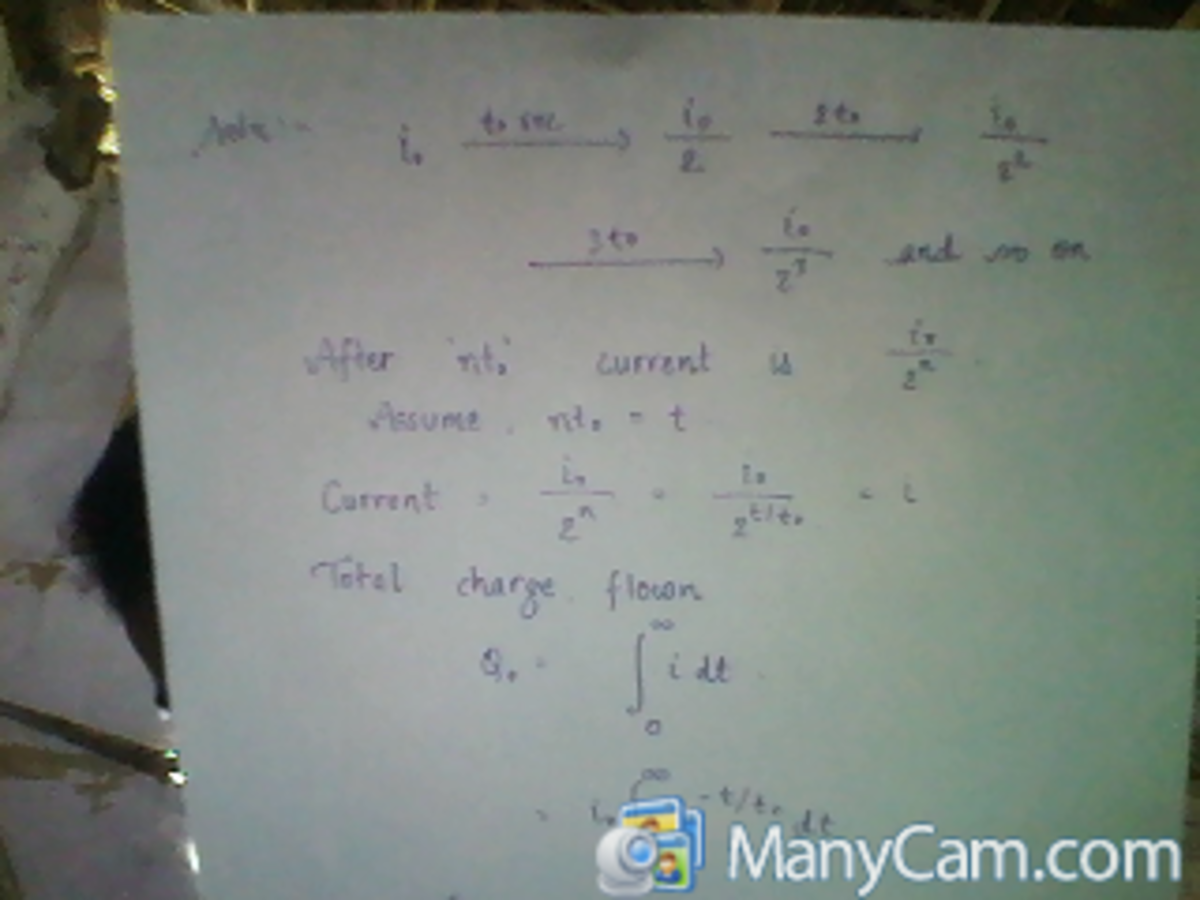Current electricity
The current I ( t ) flowing through a wire for t ≥ 0 is given by I ( t ) = 2 − t .
Find the total charge that will flow through the wire.
The answer is 1.442.
This section requires Javascript.
You are seeing this because something didn't load right. We suggest you, (a) try
refreshing the page, (b) enabling javascript if it is disabled on your browser and,
finally, (c)
loading the
non-javascript version of this page
. We're sorry about the hassle.
1 solution
 . solve the integral
. solve the integral
There are many continuous, monotonically decreasing functions that satisfy I ( t + 1 ) = I ( t ) / 2 . It need not just be of the form 2 − t .
Other examples are of the form 2 − t × 2 f ( t ) where f ( t ) is a continuous function that satisfies f ( t ) = f ( t + 1 ) and ∣ f ( t ) ∣ < 1 for all points t .
As such, can you make it clear that you're looking for I ( t ) = 2 − t ?
Log in to reply
SImply charge flowing in d t is d q and , d q = i d t ⟹ q = ∫ 0 ∞ 2 − t d t = ( ln 2 ) − 1 , I don't think we need to find the functional relationship.